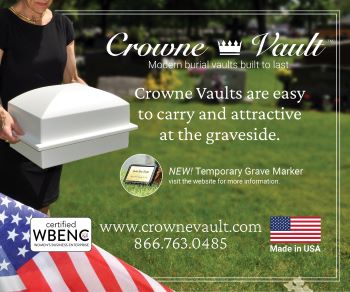Arrangements and mental fatigue
 Columnist Lee Schafer had a business column in the Minneapolis Star Tribune on Sunday that you can read here. The basic tenet of the article was on decision making and the decisions we are making when it comes to the mask/no mask decision by Americans.
Columnist Lee Schafer had a business column in the Minneapolis Star Tribune on Sunday that you can read here. The basic tenet of the article was on decision making and the decisions we are making when it comes to the mask/no mask decision by Americans.
Eventually, the article gets into the thought process, that as American consumers, we make so many decisions every day. Schafer opines that sometimes we are just so fatigued over all these decisions that many times we don’t make good decisions.
Kathleen Vohs, a marketing professor at the University of Minnesota, who is also trained in psychology and human behavior also gives her opinions in the article. She states that sometimes people make so many decisions during the course of the day that they can use up their capacity for self-control and then can make poor decisions. Vohs also says these decisions are predictable from a human behavior science point of view.
Angie and I built the house we still live in in 1993. I distinctly remember having decision fatigue when we would go through the house with the contractor and he would say, “Where do you want the light switch in this room, where do you want outlets, where do you want cable television boxes, and where do you want phone jacks?” I can remember thinking, “Just put them in. I’ll get used to them wherever they are.”
The article also reminded me of my days as a funeral arranger and a preneed funeral sales rep. I used to sit in on arrangements with people who had just lost loved ones and, over time, see them check out mentally. And, it’s no wonder, they were tired and they had to make a myriad of decisions.
Think about it. . . let’s say grandpa died last night and grandma made a 9 a.m. appointment the next morning for funeral arrangements. First of all, if grandpa died last night, grandma probably didn’t sleep very well.
Now, it is 9 a.m. and grandma arrives at the funeral home with her children. She is welcomed by the funeral director, who informs her he is

Tom Anderson
Funeral Director Daily
required to offer her a price list as a Federal Trade Commission requirement. And, he then explains the legal tenets and pricing policies of that requirement. Also, the funeral director has invited her pastor to sit in on the arrangements. Grandma has to make decisions on what day will the funeral be, what time, what songs does she want to hear, what Bible verses should the pastor preach off of, who should be the organist. . . . all the way down to does she want the ladies group serving the lunch to butter the buns or leave them unbuttered.
Then there is the funeral director asking all of the historical questions for the death certificate and maybe some other information that will help in writing an obituary.
Finally, it gets to be the time to select merchandise — caskets, vaults, urns, cremation containers, register books, memorial folders, and the like. This, if not before, is where I would usually see people just check out mentally. They realize, maybe because they are selecting a casket or urn, they are here because of a death and just seem to want “it all over”.
It wasn’t long after I became a funeral director that I realized this arrangement fatigue phenomena. I wanted to change it, but didn’t really know how. . . .the clergy asked lots of questions, but they were important. . .and even more so, he(she) was generally a friendly and familiar face for grandma and the kids.
What I really wanted to do was somehow limit the decisions that had to be made during this conference. We ended up doing two things that really helped out. . . First of all, at the place of removal we gave out a pamphlet and asked if they could fill some of it out before they came in. It contained room for factual death certificate items as well as room to write down pallbearer names, preferred organists, preferred soloists, and the like. It also explained what clothing to bring to the funeral home the next day. Our guess was that families were home after the deceased had been removed and while they were together they would put a little effort into that pamphlet. It really worked.
Secondly, and this also worked, is that, in addition to giving ala carte selections as to services, caskets, vaults, urns, etc. we put services and merchandise into packaged units where only one decision would allow for the selection of a hours of visitation, a casket and a vault, and sometimes, more. Not only did it work as families only had to make one decision — sometimes based solely on the price they wanted to pay — but we were able to price the packages in a way that could be advantageous, in a cash margin way, to the funeral home.
At the end of the day, arrangements took less time and families were more satisfied with them. they were able to get home and spend time with loved ones and people who were stopping at their home instead of spending extra time with the funeral arrangements.
So, if you have been a funeral director for any length of time, you are aware when arrangements become too long or too tedious and the mental fatigue rolls in on your client families. Our ways of helping are certainly not an exhaustive list of how to alleviate the fatigue. Maybe you can think of ways that would become best practices in your situation.
News from the world of Death Care:
- Losing loved ones during a pandemic: families, funeral homes cope when nothing is normal. Fond du Lac Reporter (WI)
- Grand Island considers state ownership of Veterans’ Cemetery. Kearney Hub (NE)
- Cemetery worker discovers human bones spilling from embankment in Henrico. ABC News 8, Richmond (VA)
- New website allows you to compare funeral prices. WPVI 6 News, Philadelphia (RA)
- How the pandemic is impacting this East End funeral home. KTRK ABC Action News. Houston (TX)
[wpforms id=”436″ title=”true” description=”true”]



















